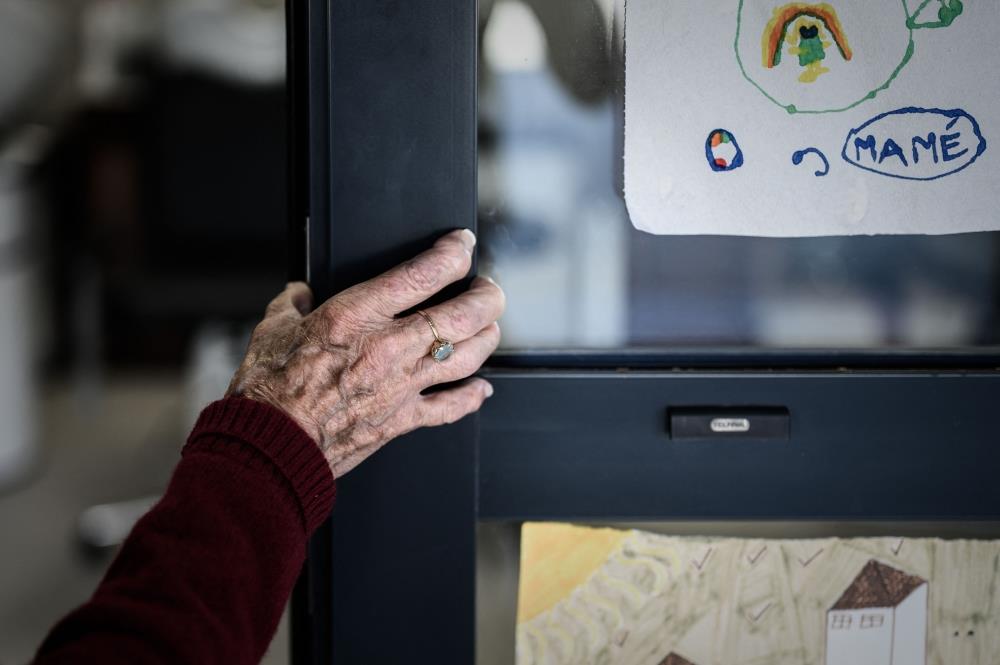How Much Progress Has Been Made Against Alzheimer's Disease?
Paris: After decades of unsuccessful research, two new drugs and a pioneering blood test have recently given Alzheimer's patients hope of fighting back against the debilitating disease -- but questions remain about their effectiveness.
Any path toward a cure also remains elusive for Alzheimer's, which accounts for around 70 percent of dementia cases worldwide and is a leading cause of death among the elderly.
Ahead of Alzheimer's Day on Sunday, here is what to know about recent advances to prevent, diagnose and treat the disease.
How effective are the new drugs?
Billions of dollars have been spent trying to find a treatment for Alzheimer's disease over the decades, but those efforts have stubbornly fallen short -- at least until recently.
Eli Lilly's donanemab and Biogen and Eisai's lecanemab are the first treatments proven to significantly slow the progression of Alzheimer's.
But the expensive treatments are only modestly effective, and work only for patients at an early stage of the disease. There can also be serious side effects including potentially deadly brain haemorrhages.
That has sparked a debate about whether the benefits of the drugs outweigh the risks, leading to national health regulators taking different stances.
Lecanemab, which is sold under the brand name Leqembi, has been approved in many countries including the United States.
But French health authorities advised the state-run insurance system not to reimburse payment for the drug.
It followed in the footsteps of the UK's state-run health service, whose spending watchdog said this year that both new Alzheimer's drugs did not show enough benefits given their price.
Read Also-
Indonesia volcano erupts as alert level raised
Panda House in Qatar marks seventh birthday of resident panda
Trump says his negative media coverage is 'illegal'
Trump hits H-1B visas, a tech industry favorite, with $100,000 fee
What about early diagnosis?
Another debate roiling Alzheimer's research -- and which has also seen a growing divide between Europe and the United States -- revolves around how to diagnose the disease.
The standard method of diagnosing Alzheimer's has required an invasive and expensive lumbar puncture, which can rule out some more at-risk patients.
But a simple blood test that detects "biological markers" of the disease has recently been developed.
US authorities have authorised the test since May, but Europe has not yet approved any Alzheimer's blood test, one of which is the subject of a recently launched national clinical trial in Britain.
The question is whether the blood test will ever be enough by itself to confidently diagnose the disease.
Last year the US nonprofit Alzheimer's Association changed its criteria to say that biomarkers alone were sufficient.
But in Europe, most specialists think a thorough clinical exam will still be needed to confirm a person's cognitive and functional decline.
Many patients "with abnormal biomarkers never develop dementia", Dutch neurologist Edo Richard told AFP.
Richard is also sceptical of the two new Alzheimer's drugs.
The two issues are linked, because proponents of the drugs believe that being able to diagnose the disease before noticeable symptoms appear could amplify the impact of the treatments.
Can Alzheimer's be prevented?
One area of consensus is what makes people more at risk of getting Alzheimer's disease and dementia more broadly.
Nearly half of all cases are linked to factors such as obesity, smoking, drinking alcohol, physical inactivity and hearing loss, according to an expert review in The Lancet last year.
There is an increasing amount of research seeking to determine whether programmes encouraging people to exercise and eat better are effective at fighting Alzheimer's.
But so far the randomised controlled trials "targeting these risk factors have shown limited to no effects on cognitive decline or dementia", Richard said.
A recent JAMA study found that the cognitive decline of Alzheimer's patients slowed slightly after undergoing two years of intensive support to be healthier.
For people suffering from Alzheimer's and their families, this kind of progress may not look like much, French epidemiologist Cecilia Samieri acknowledged at a conference this month.
But compared to where things were just a few years ago, "it's already huge", Samieri said.
She said she believed that only trials lasting 10 to 15 years could really show how effective such interventions could be against long-developing diseases such as Alzheimer's.

Legal Disclaimer:
MENAFN provides the
information “as is” without warranty of any kind. We do not accept
any responsibility or liability for the accuracy, content, images,
videos, licenses, completeness, legality, or reliability of the information
contained in this article. If you have any complaints or copyright
issues related to this article, kindly contact the provider above.
Most popular stories
Market Research

- Excellion Finance Scales Market-Neutral Defi Strategies With Fordefi's MPC Wallet
- BILLY 'The Mascot Of BASE' Is Now Trading Live On BASE Chain
- Pascal And Treehouse Partner On Proof Of Concept To Pioneer Smart Clearing For Decentralized Fixed Income Products
- XXKK Exchange Strengthens AML And KYC Systems To Elevate Compliance Standards
- Kucoin Partners With Golf Icon Adam Scott As Global Brand Ambassador
- TOKEN2049 Singapore Breaks Records: 25,000 Attendees At The World's Largest Web3 Event






















Comments
No comment